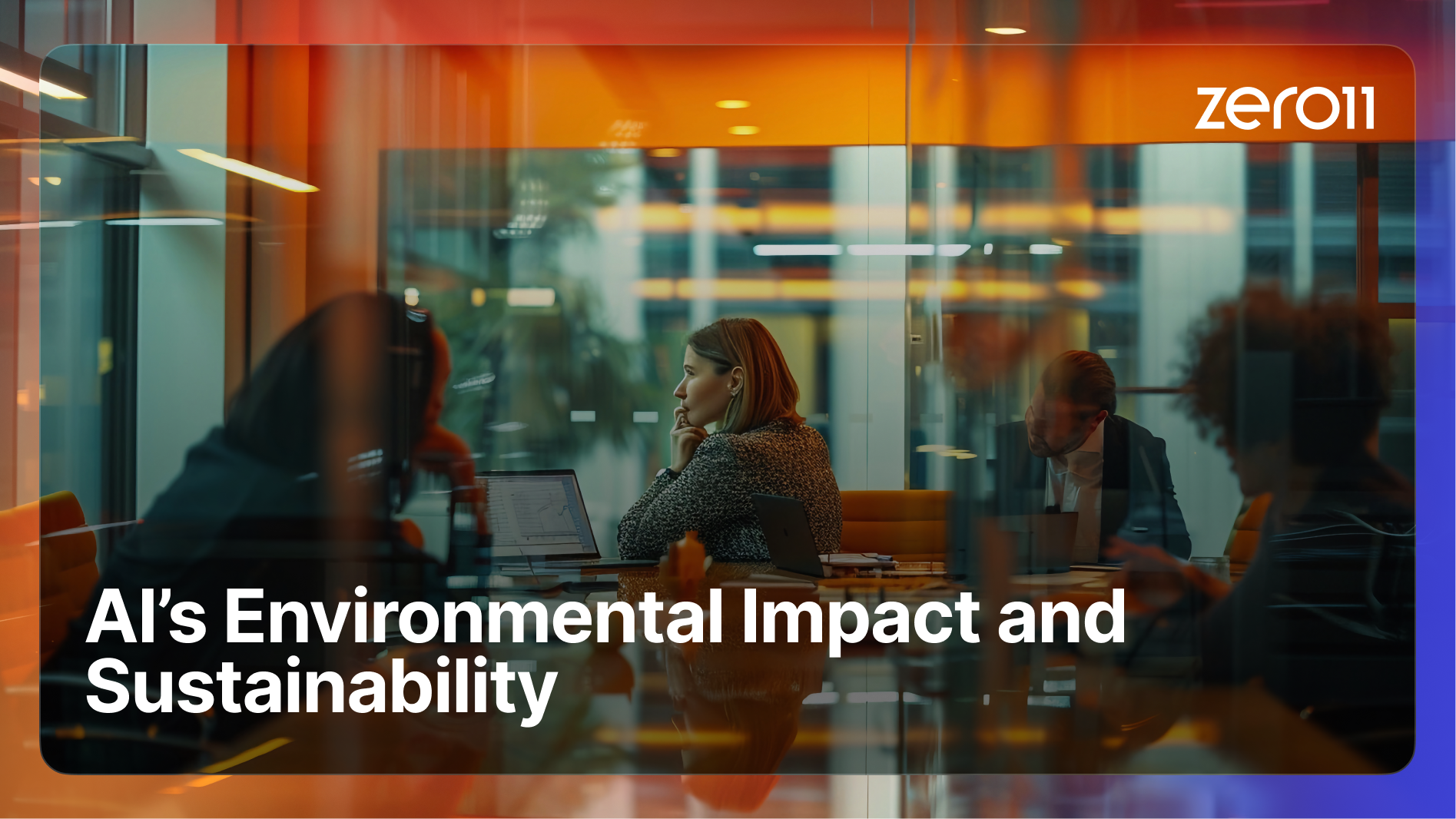Index
22 July 2024
AI and corporate sustainability

Industry 4.0 is increasingly relying onartificial intelligence to optimize business processes, but how sustainable is this use? In this article we will examine the impact ofAI on the environment and its role in helping companies grow sustainably. You will discover howAI, when used responsibly, can help reduce environmental impact and optimize business resources.
AI and corporate sustainability
The use ofArtificial Intelligence (AI) is a hot topic in the context of green marketing and corporate sustainability.
On the one hand, its use may raise some concerns related to excessive resource consumption, particularly in terms of hardware and electricity consumption. However, when used responsibly,AI can be an indispensable ally in optimizing certain business processes.
For example,AI can help companies improve energy efficiency in production processes, thereby reducing environmental impact. It can also help optimize resource and materials management, enabling companies to reduce waste and maximize the use of available resources.
In this way,AI not only supports corporate sustainability, but can also help improve the company's reputation on the environmental front.
Technology and business sustainability
Technology and corporate sustainability are two elements that can go hand in hand, helping to improve efficiency and reduce the environmental impact of business operations.
For example,Artificial Intelligence (AI) can be used to optimize manufacturing processes, reducing waste of resources and energy. In addition, AI can be used to monitor and predict energy consumption, enabling companies to identify potential areas for improvement and take corrective measures to reduce consumption.
Another concrete example is the use of AI in waste management: through data analysis, waste recycling and disposal processes can be optimized, thereby reducing the environmental impact associated with the production of non-recyclable waste.
In this way, AI technology proves to be a valuable tool for implementing more sustainable business practices, helping to promote an eco-friendly culture within organizations and improve corporate reputation on the environmental responsibility front.
AI resources and environmental impact
The development of artificial intelligence models requires a wide range of resources, including advanced hardware and considerable electricity consumption. This can pose a challenge in terms of sustainability, considering the environmental impact associated with the extraction and production of these materials, as well as the energy required to run AI systems.
For example, the production of computer chips, which are critical for data processing inartificial intelligence, requires rare and valuable materials such as silicon and energy-intensive industrial processes. In addition, data centers that house AI systems consume huge amounts of energy to operate efficiently.
However, it is important to note that the responsible use ofAI can lead to significant benefits in terms of corporate sustainability. For example, AI can be used to optimize resource utilization, reducing waste and improving the company's overall operational efficiency.
In addition, AI technologies can help identify new opportunities for reducing energy consumption and improving eco-friendly business practices. Therefore, while the development of AI technologies presents challenges in terms of environmental impacts related to the resources used, their responsible implementation can offer innovative solutions to address these issues, contributing to sustainable business growth.
Optimization with responsible AI
The use of AI models to analyze data on sustainable practices within the company can make it possible to identify areas for improvement and optimize strategies to reduce environmental impact.
In addition, usingAI to manage production processes can contribute to greater energy efficiency and more sustainable production.
To maximize the benefits ofAI from a sustainable perspective, it is critical to take a responsible approach to managing and implementing these technologies.
This means investing in staff training to ensure specific AI and sustainability skills, as well as fostering a corporate culture aimed at innovation and constant monitoring of environmental performance.
In addition, it is important to set clear and measurable goals for the use ofAI with a sustainable perspective, constantly monitoring the results achieved and making course corrections if necessary.
Finally, collaboration with external partners specializing in the field of artificial intelligence can offer additional perspectives and innovative solutions to address challenges related to corporate sustainability.
Indispensable ally for growth
Artificial Intelligence is an indispensable ally for the sustainable growth of companies in the context of green marketing and corporate sustainability. Therefore, although the development of AI models requires considerable resources, if used responsibly and consciously,AI can be a valuable tool for fostering the sustainable growth of companies in the context of green marketing and corporate sustainability.
The advice given in terms of adopting responsible approaches in the management and implementation of AI technologies, the importance of staff training and constant monitoring of environmental performance are therefore even more crucial. In addition, collaboration with external partners who specialize in the field of artificial intelligence can offer additional perspectives and innovative solutions to address challenges related to corporate sustainability. Making the most of the potential ofAI with a view to sustainability is therefore crucial to ensuring environmentally conscious growth, as well as positioning the company as a major player in the green market.
Use AI responsibly
Rely on Zero11 for your next projects
Previous articles

artificial intelligence
AI, LLM, and Intelligent Agents: The Future of Integration with Quarkus
2/03/2025

Artificial Intelligence
Artificial Intelligence: Governance, Ethics, and Sustainability – An Open Debate
1/03/2025

CRM & Marketing Automation
CRM and Marketing Automation: the Essential Integration for 2025
18/02/2025